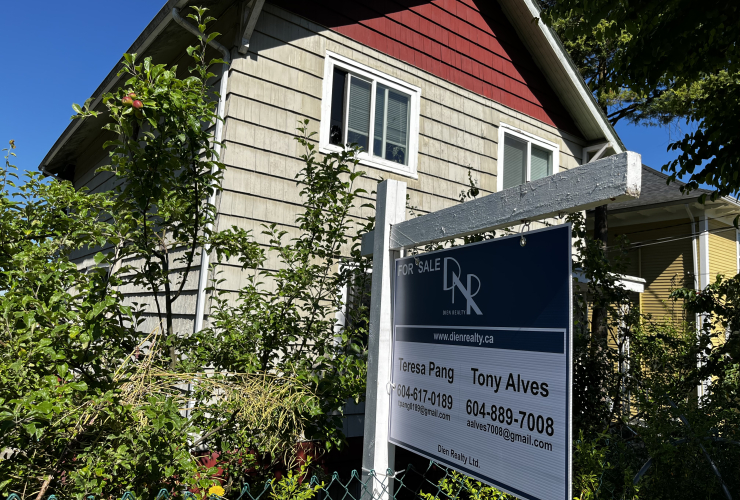As a child, I traveled to First Nations and Inuit communities in Nunavut and northern Manitoba with my father Lorne, a legendary bush pilot. He showed me the beauty of indigenous people and his land and taught me about the power, strength and resilience that comes from embracing this connection with the land, its spirit, its beings and the Creator.
As a Métis family physician, I see the powerful ties of kinship, knowledge, and value systems in the indigenous communities I serve. They have survived generations of racism and genocide and continue to be a foundation of strength and purpose. These are the tools we need to heal the healthcare system and its terrible legacy of racism.
As a medical student, I also learned the power of Western knowledge systems and the ability to “save lives” such as prescription drugs and invasive surgical procedures.
Too often, however, the methods of Western medicine directly conflict with my experience and values as a Métis woman and a First Nations ally. Indigenous patients find diagnostic procedures intimidating and their previous experiences with this system are often traumatic. The deaths of Joyce Echaquan and Brian Sinclair while waiting for hours in emergency rooms did not come as a surprise to indigenous peoples who faced similar experiences.
Health care leaders in indigenous communities taught me how to marry the impact of Western medicine with the humility, values, and teachings of Indigenous Ways of Knowing. Combining these knowledge systems in practice has allowed me to improve patient care and outcomes. My indigenous patients tell me that they feel listened to, honored and respected.
My joy at work, resilience to burnout, and happiness have been enhanced by this journey to better understand these two knowledge systems. But in a larger picture, the combination of indigenous and western knowledge systems has the power to create space for reconciliation.
The first step in ending systemic racism and everyday discrimination against Indigenous Peoples in healthcare settings is to focus on inclusion and respect. The only way to move this forward is through long-term partnerships with indigenous communities and recruiting and promoting more indigenous leaders in health care.
what people are reading

Kiikew (pronounced Kee-Kay-Oh) seeks to create alliances between indigenous health professionals and health institutions. Our mission is to build bridges of understanding between Western medicine and indigenous knowledge systems. The most important of these bridges is creating and strengthening networks of indigenous health leaders who will provide a pathway to improve patient health outcomes.
These leaders will not only be in primary care. To achieve reconciliation, we need leaders in ultrasound, medical records, nursing, dentistry, pharmacy, mental health, among other areas that touch indigenous patients. Once indigenous health professionals find purpose in these fields, we can unlock many other ways to promote reconciliation.
As dean of admissions at a leading Canadian medical school, I know that the barriers to indigenous participation in the health field are high and discriminatory. I faced them myself as a student, and other marginalized people are saying similar stories. Equitable health care for our First Nations communities depends on breaking down these barriers.
To achieve reconciliation in health care, we need indigenous leaders in areas like ultrasound, medical records, nursing, dentistry, pharmacy, and mental health, writes Sara Goulet @SaraGoulet2. #Métis #racism #CDNsalud
We cannot trust health care institutions to reform from within. Solutions will come from outside the current system, which is based on colonial principles of white supremacy that allow the natives to cry in pain for hours in the ER only to die of neglect while being subjected to racist taunts. They will come from collaboration with indigenous doctors, nurses, administrators and other health professionals. They will come acknowledging the perspectives and understanding of the health and well-being of patients, children, parents, and indigenous community leaders.
for example, there is innovative approaches to recruit more indigenous doctors students, capable of becoming energetic leaders, to university programs. But we have to move faster.
Colleges and colleges that train health professionals need to take a holistic admissions approach to attract even more indigenous students who have faced challenges in the past.
We are all aware of the importance of grades, test scores, and assessments in assessing student abilities. These are useful Western standards, but these academic markers must consider the context of the applicant’s lived experiences: Were they raising a family while attending school? Did they have a full-time job? Did they come from a rural setting? These factors indicate that a student was able to do well in high school or an undergraduate program while juggling adversity and is more likely to be successful in our health professional programs.
In addition, they bring life experiences that help them not only understand, but also become better prepared to care for patients from communities that are currently underserved in our health care system.
The only way to close the gaps in health care for indigenous peoples in Canada is to admit, train and promote First Nations, Métis and Inuit applicants to senior health leadership positions. It is the first step toward a new partnership that honors and incorporates indigenous ways of knowing into admissions, training programs and the daily operations of our health care system. True partnerships like these will heal not only Indigenous Peoples and their communities, but the Canadian health care system as a whole.
Dr. Sara Goulet is a member of the Red River Settlement Métis community with roots in Lorette, Man. In her youth, her father, a bush pilot, would take her with him, sharing the beauty of the Kivalliq region and the resilience of First Nations and Inuit communities. Today, as a practicing physician and Dean of Admissions at the University of Manitoba Max Rady School of Medicine, Dr. Goulet advises, advises, and advocates for indigenous peoples. Her mission is to make health care and educational environments safe and representative. She can be contacted at [email protected].
